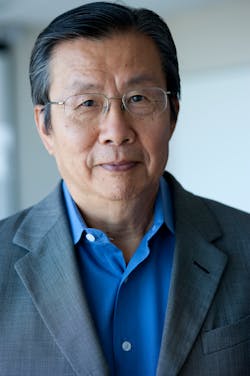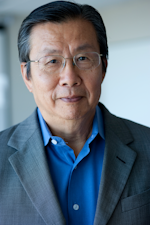Business Forum: Making mentorship work is mutually beneficial

Q: How much has your career benefited from having mentors?
A:I have benefited a great deal from many mentors during my career. Having a mentor speeds up and intensifies the learning process because you are getting the essence of your mentor's insight that might have taken a lifetime to develop on your own. A mentor can also provide behind-the-scenes background regarding why and how management decisions are made, which may very well come in handy when you encounter a similar situation.
I would like to discuss mentoring in some detail given that this subject comes up frequently after my talks, which indicates to me there is a high level of interest. Just so we are on the same page on the definition of mentoring: According to Wikipedia, "[m]entorship is a personal developmental relationship in which a more experienced or more knowledgeable person helps to guide a less experienced or less knowledgeable person." And according to the Merriam-Webster dictionary, a mentor is a trusted counselor, guide, tutor, or a coach.
In its everyday usage, mentoring usually implies a relationship that lasts over a period of time. In reality, we all have mentors at some point in our lives. Our teachers, our boss at work, an older friend or relative, or someone who knows about a subject we are interested in. Anyone who is willing to take us in to share knowledge can be considered an interim mentor.
I did a fair amount of research and read a book on this subject when I encountered difficulties interacting with a mentor with whom I had developed a deep relationship. It turns out many issues can be understood by knowing why a person is interested in mentoring. Many mentors do so purely for altruistic reasons. Sometimes they are interested in teaching, grooming someone as a replacement, or simply because they like an individual and want to see that individual grow. Unfortunately, sometimes the reason is to satisfy the need for control or to feel superior. Invariably, the mentor-mentee relationship breaks down when the motivations are less than pure good will. Gradually the mentee's submissiveness will give way to the need for independence, and the individual may even at some point in time feel that he or she knows more than the mentor.
One question people frequently ask me is, "How do I find and engage a mentor?" Mentors are all around us if we have the humility and desire to learn from them. The process of engaging a mentor begins when you ask someone knowledgeable for his or her advice. Most people instinctively want to respond in a helpful way when asked, and that interaction could very well be the beginning of a mentoring relationship. From the mentor's standpoint, it is flattering to be asked and it is also fun to work with a worthy individual who is open and receptive to input.
A more important question people rarely ask is, "What does it take to maintain a meaningful relationship that lasts?" Like all relationships, the key ingredient is reciprocity. The mentor is less likely to be disappointed if entering the relationship without high expectations but purely with the intention of coaching. And the mentee enters the relationship with humility and an open mind. The relationship is likely to last if the mentee will be receptive to input, to learning, and to extrapolating what is taught into additional experiences. There is no greater satisfaction for a mentor than to see the mentee succeed due to a constructive relationship with his or her contribution. All too often a mentoring relationship will never get off the ground when the mentee is really looking for approval and will initiate a debate right from the start.

Milton Chang
MILTON CHANG of Incubic Management was president of Newport and New Focus. He is currently director of mBio Diagnostics and Aurrion; a trustee of Caltech; a member of the SEC Advisory Committee on Small and Emerging Companies; and serves on advisory boards and mentors entrepreneurs. Chang is a Fellow of IEEE, OSA, and LIA. Direct your business, management, and career questions to him at miltonchang@incubic.com, and check out his book Toward Entrepreneurship at www.miltonchang.com.